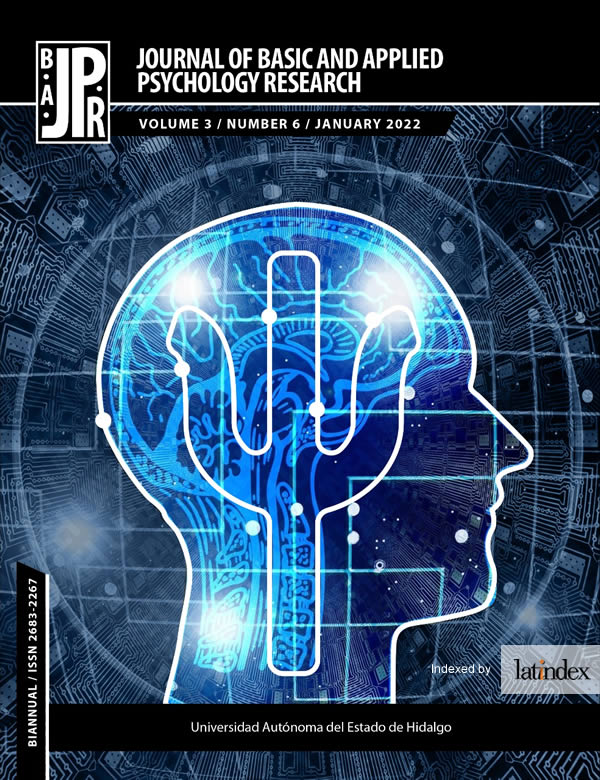Cognitive-behavioral intervention for the management of symptoms associated with divorce in children
DOI:
https://doi.org/10.29057/jbapr.v3i6.6203Keywords:
divorce, children, cognitive-behavioural, interventionAbstract
The family is the basis of human development, it is the social context that provides the necessary conditions for children to acquire their autonomy at all levels; in addition to the necessary physical care to guarantee their survival. The family is the one that provides the essential affective climate so that there is a process that changes the biological being that is a baby, in a person, in a biopsychosocial being. Marriage arguments emotionally deplete parents and diminish their interest in the emotional needs of their children, who may understand it as rejection or absence of affection, very detrimental to their personal growth. Additionally, marital conflict decreases the parents ability to integrate and participate socially. The provision of affective and emotional stability that child development requires can be seriously threatened by the separation or divorce of the parents, it affects children in the form of coping they use in stressful situations, in the formation of the attachment process, the affective and emotional stability required for child development and how they respond to changes in the family.
Downloads
References
Amato, P., & Keith, B. (1991). Parental divorce and the well-being of children: a meta-analysis. Psychol Bull. 110 (1), 26-46.
Auersperg, F., Vlasak, T., Ponocny, I., & Barth, A. (2019). Long-term effects of parental divorce on mental health –A meta-analysis. Journal of Psychiatric Research. (119), 107-115. https://doi.org/10.1016/j.jpsychires.2019.09.011
Avenevoli, S., Sessa, F. M., & Steinberg, L. (1999). Family structure, parenting practices, and adolescent adjustment: An ecological examination. In E. M. Hetherington (Ed.), Coping with divorce, single parenting, and remarriage: A risk and resiliency perspective (pp. 65–90). Lawrence Erlbaum Associates Publishers.
Ayala, H., Pedroza, F., Morales, S., Chaparro, A. & Barragán, N. (2002). Factores de riesgo, factores protectores y generalización del comportamiento agresivo en una muestra de niños en edad escolar. Salud Mental, 25(3), 27-40.
Clapp, G. (1992). Divorce and new beginnings, an authoritative guide to recovery and growth, solo parenting, and stepfamilies. John Wiley & Sons Inc.
Esteban, J. (2018). Divorcio, niveles de conflicto y repercusión en los hijos. Universidad Pontíficia
Goisis, A., Özcan, B., & Van Kerm, P. (2019). Do Children Carry the Weight of Divorce? Demography, (56), 785–811 https://doi.org/10.1007/s13524-019-00784-4
Hetherington, E. M., Bridges, M., & Insabella, G. M. (1998). What matters? What does not? Five perspectives on the association between marital transitions and children's adjustment. American Psychologist.
Instituto Nacional de Estadística y Geografía, [INEGI] (2020). Censo de Población y Vivienda https://www.inegi.org.mx/programas/ccpv/2020/default.html#Publicaciones
Kovacs, M. (1992). Children`s Depression Inventory (CDI). Multi-health Systems. Inc.
Maccoby, E. E., Mnookin, R. H., Depner, C. E., & Peters, H. E. (1992). Dividing the child: Social and legal dilemmas of custody. Harvard University Press.
Meave, S. (2002). Reporte de Experiencia professional. Universidad Nacional Autónoma de México.
Pagés i Criville, M. (2002). Hijos y divorcio: consejos legales y ayuda emocional para parejas con niños. Martínez Roca.
Pérez, C., Davins, M., Valls, C., & Aramburu, I. (2009). El divorcio: una aproximación psicológica, La Revue du REDIF, (1), 39-46.
Peterson, C., & Seligman, M. E. P. (1984). Content analysis of verbatim explanations: The CAVE technique for assessing explanatory style. Unpublished manuscript, Virginia Polytechnic Institute and State University.
Reynolds, C y Richmond, B (1978) What i think and feel: A revised measure of children's manifest anxiety, Journal of Abnormal Child Psychology, June 1978, Volume 6, Issue 2, pp 271-280.
Roizblatt, S., Leiva, F., & Maida, S. (2018). Separación o divorcio de los padres. Consecuencias en los hijos y recomendaciones a los padres y pediatras. Revista Chilena de Pediatría, 89(2), 166-172. https://dx.doi.org/10.4067/S0370-41062018000200166
Schaefer, B., & Ginsburg-Blorck, M. (2007). Helping Children and Adolescentes Dealing with Divorce in Christner, R., Stewart, J. y Freeman, A. (eds.) Handbook of Cognitive-Behavior group therapy with children and adolescents, specific settings and presenting problems. Taylor & Francis Group.
Sik Kim, H. (2011). Consequences of Parental Divorce for Child Development. American Sociological Review, 76(3):487-511. doi:10.1177/0003122411407748
Valencia, A. (2007). Programa de apoyo psicosocial para niños con cáncer y sus familias. UNAM















